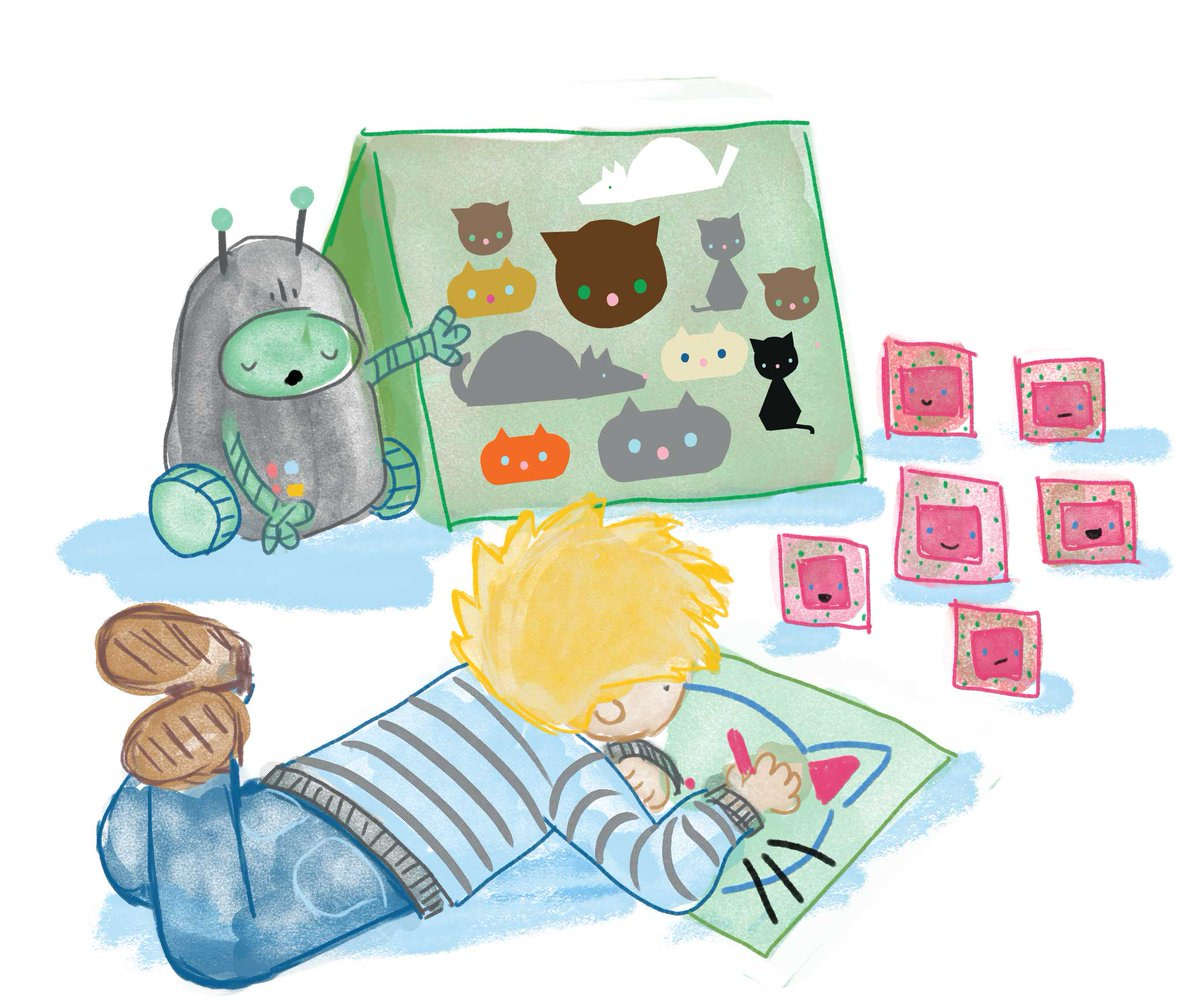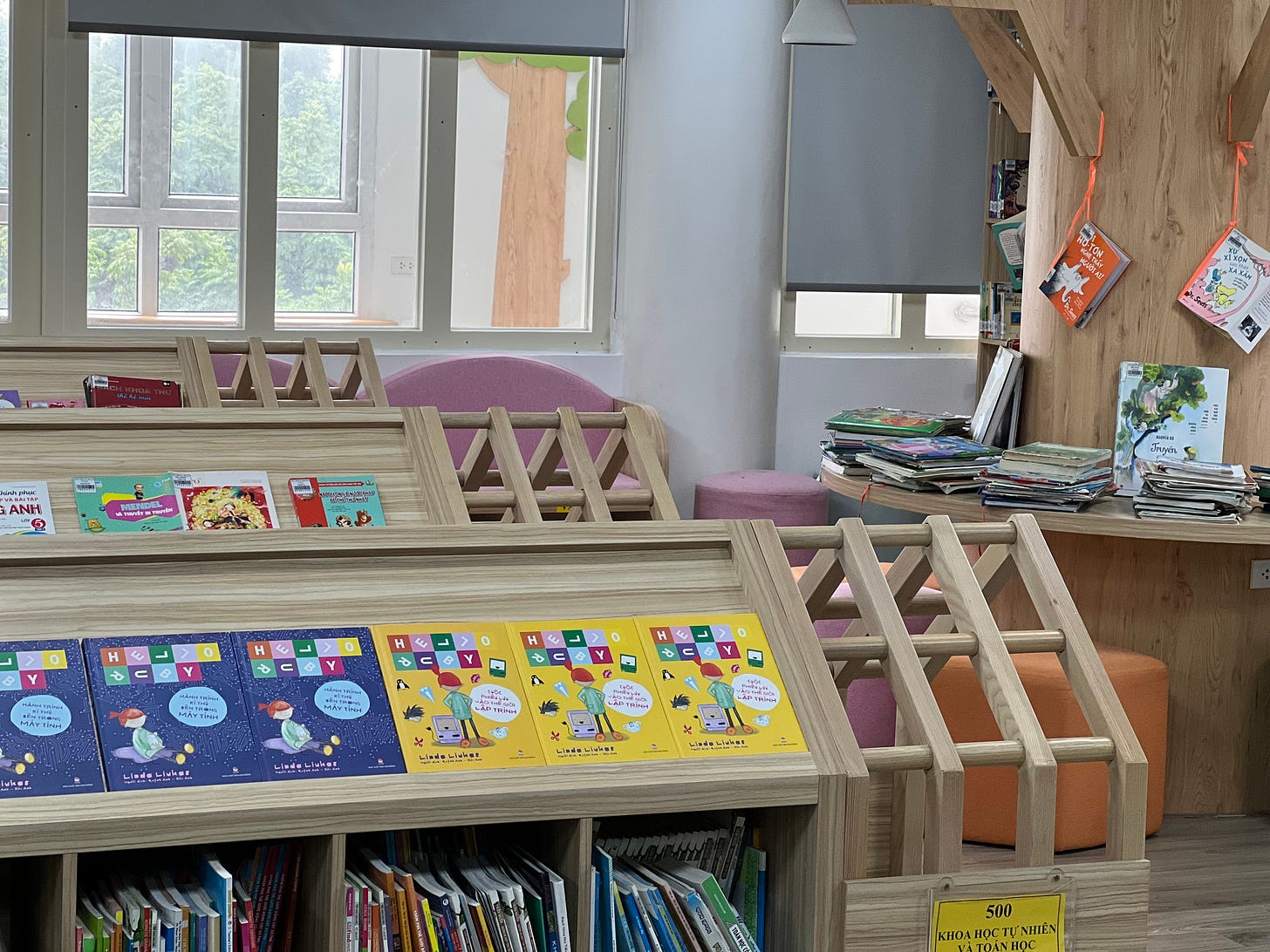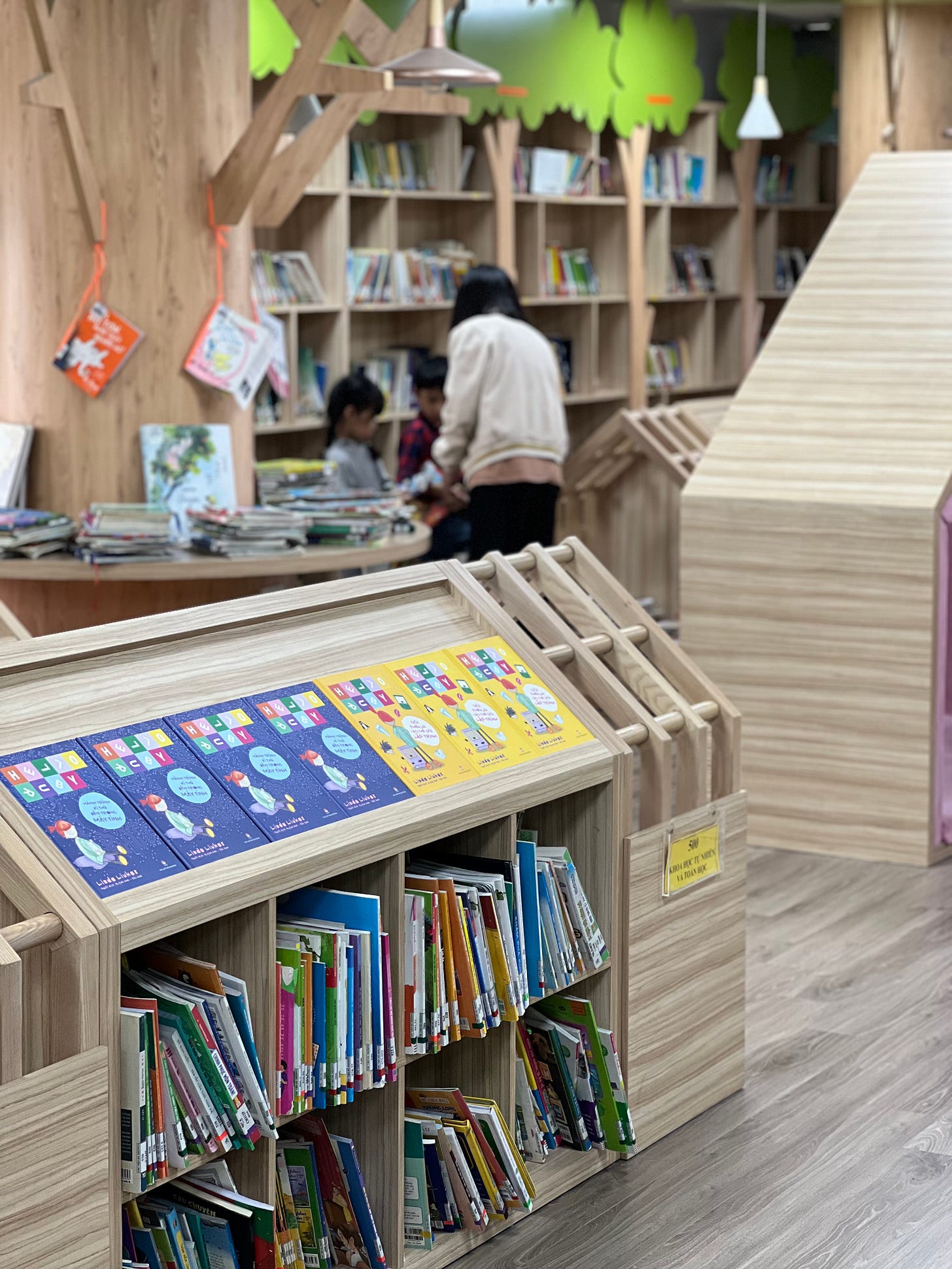No. 72 — A matrix of AIs ⫶ Retired playground animals ⫶ Hello Ruby - Cuộc Phiêu Lưu Vào Thế Giới Lập Trình
Collective nouns for technologies
My name is Linda. I write a bi-weekly newsletter about computer science, childhood, and culture.
Dennis Yi Tenen, an associate professor of English at Columbia University and a computer scientist, explores the intertwined history of linguistics, plot generators, medieval prophecy wheels, Markov chains, Pushkin, and modern chatbots in his 2024 book Literary Theory for Robots.
I loved the book; it has tangles and twists and is short enough to enjoy in one evening.
At the conclusion of the book, Yi Tenen reflects on our tendency to obscure and condense technology by using shorthands, like AI.
He notes, "We employ a cognitive-linguistic shortcut by condensing and ascribing agency to the technology itself. It's easier to say, 'The phone completes my messages' instead of 'The engineering team behind the autocompletion tool, drawing from a plethora of research papers, completes my messages.'"
He highlights how technology is inherently collective and composite. It's built on libraries, archives, and encyclopedias through the work of countless humans.
Yi Tenen's writing made me wonder: Why don't we then have more collective nouns for technology?
While the English language has so many collective nouns for groups of people, animals, or things, such as a team of players, a flock of birds, or even a parliament of owls, there are few commonly accepted terms for describing groups of technology.
A stream of data, a network of nodes, or a cloud of servers came to my mind. There used to be a project suggesting ideas for potential collective nouns, like a school of robots, an Asimov of computers, or a matrix of AIs, but ultimately, we still need the words.
Yi Tenen, however, gives us some guidance in finding the collective nouns for technologies:
"One should not confuse topical nouns, like flora and fauna for specified organisms, like forests and oceans. Flora is just a word that we use for many different, disconnected plants. A forest implies a unified organism, integrated by the action of its roots and rhizomes."
We're looking for a word that captures the complex web of connections, rituals, and legal agreements found in technology. A noun that highlights collectives, composites and communities.
Linked List
In computer science, a linked list is a linear collection of data elements whose order is not given by their physical placement in memory. But here it is a selection of things I’ve been reading lately.
Believable space. A former architectural illustrator offers a lovely write-up on the role of weather, light, time of day, things, and narrative details when illustrating (urban) spaces. “No one can really relate to a space that is not one thing or another. In a bid to not offend anyone, the result was often a very bland ‘nothing drawing’”. The post itself, however, is full of not-nothing drawings.
Two thoughtful newsletters on public space: Tommi’s Policies for Convivencia and Bryan’s Urban Technology at the University of Michigan. I always learn a lot from them. My favorites are the ones on building a degree program and the analysis of Tom Lee Park.
Home for Retired Playground Animals in Queens. It made me remember the mice farm.
Classroom
I’m hoping to surface and share stories from all of you and I’d love to see your creations! Here are a few teachers using Ruby in creative, fun and inspiring ways.
New translations have a lovely energy of their own. Last fall, Kim Dong Publishing House translated the first two books in the Hello Ruby series into Vietnamese. Here are a few photos from the central library of Hanoi, which looks gorgeous, and more stories from the launch event.
Kim Dong will publish the following two books in May, so I'm looking forward to some new updates! A very cool curriculum combining Finnish pedagogics and the playful world of Ruby is being created for Vietnamese schools—if you know, I'll be happy to introduce you.






